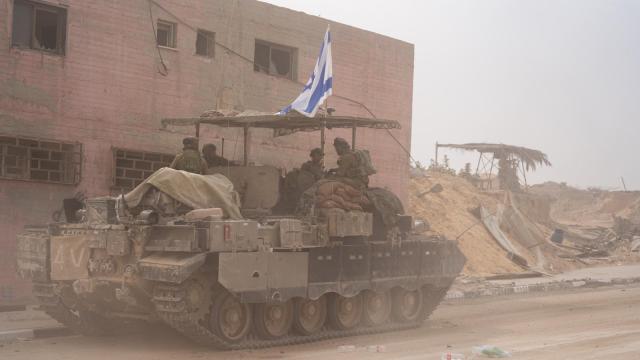As the war in Israel enters its 41st day, the Israel Defense Forces (IDF) continue their ground offensive in the Gaza Strip, with indications of a potential advance into the southern part of the strip. Additionally, a distressing terrorist attack occurred just south of Jerusalem on Thursday morning, resulting in injuries to at least five individuals, one of whom is in critical condition. Amidst ongoing rumors regarding negotiations for a potential ceasefire or peace deal, Israeli officials remain resolute in their commitment to national security, refraining from discussing covert efforts openly.
Thursday morning bore witness to a tragic incident when a Palestinian shooting attack unfolded near the tunnel road checkpoint in Jerusalem, leaving six people injured. Among the victims, one individual's condition is described as critical, while the remaining five have sustained light to moderate injuries. The perpetrators, three terrorists hailing from Hebron, opened fire and were subsequently neutralized by Israeli forces. Police reports indicate that the assailants arrived at the scene by car from the Judea and Samaria region, where they targeted Israeli forces.
#UPDATE: The terror attack was reportedly carried out on Route 60, south of Jerusalem, on Thursday morning. A police spokesperson confirmed that three terrorists were neutralized, adding that six victims were wounded, including one who remains in critical condition. https://t.co/apFNDQUjNH
— Israel War Room (@IsraelWarRoom) November 16, 2023
Authorities, including the Shin Bet and the police, are actively investigating whether the terrorists had intended to reach Jerusalem with the intent to carry out their attack in the city. The discovery of significant quantities of ammunition and axes within the attackers' vehicle raises concerns about their motives. Following the attack and amid suspicions of a potential explosive device at the scene, authorities temporarily closed all roads leading to the tunnel road, a critical artery ultimately connecting to the Gush Etzion settlements. Furthermore, due to the apprehension of another potential terrorist on the run, the IDF initiated a thorough scan of the surrounding Palestinian villages.
In an intriguing regional development, the Lebanese newspaper "Al-Akhbar," known for its affiliation with Hezbollah, has reported that negotiations for a prolonged ceasefire have faced obstacles. These obstacles are attributed to European and American positions, which express concerns regarding the potential impact of such an agreement on the military capabilities of Hamas. Moreover, they cite the ceiling of Israeli demands as another complicating factor. Egyptian officials, while engaged in mediating the talks, have expressed skepticism about Israel's ability to secure the release of abducted individuals solely through a ground operation.
IDF struck the home of Hamas leader Ismail Haniyeh - who lives in Qatar - in the Gaza Strip. It says the home was "used as terror infrastructure and, among other things, as a meeting place for the senior officials of the terrorist organisation.” pic.twitter.com/joTguQOcHa
— Hertfordshire Friends of Israel 🇮🇱🇺🇦 (@HertfordshireI) November 16, 2023
In a separate military operation, the IDF's 215th fire brigade, operating within the 162nd division, launched an airstrike on the residence of Ismail Haniyeh, the head of Hamas's political bureau. This house served as a hub for terrorist activities and clandestine meetings among senior members of the organization. The strike was part of the IDF's broader efforts to dismantle Hamas's infrastructure.
Furthermore, during the operation to secure the Shati refugee camp, troops from the Nahal patrol successfully located and neutralized a weapons stockpile belonging to the Hamas naval force. This stockpile contained diving systems, explosive charges, and various weapons. Additionally, the paratrooper brigade's combat team engaged with terrorists, uncovering a cache of weapons, including explosive belts, explosive barrels, RPG missiles, anti-tank missiles, and intelligence documents.


